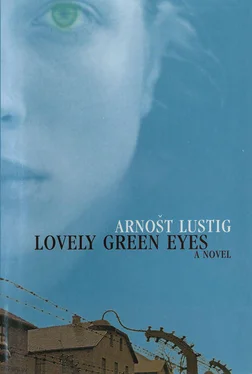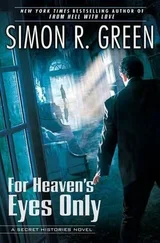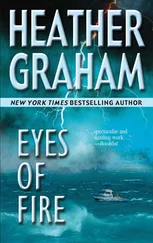Twelve times a day — by way of exception today only once with the captain — she let a stranger do with her body whatever he liked. She felt ashamed not only for herself, even though there were no witnesses. She must not show it. She must not think of whose turn it would be next. The second, the third, the twelfth man. She concentrated on the fire in the stove, on the firewood she had put on it. She had diarrhoea and a headache. Fatty had thrown up from a headache that morning.
“You smell rather nice,” the captain said. “You’re clean. I appreciate this. You make me think of a bed of heather in the forest.”
He was listening to the artillery fire.
“I hope you’re not afraid.”
“No.” She had learnt to differentiate between lies and lies. The best lie was the simplest — almost the truth.
“I’d like you to want what I want.”
She did not have a high opinion of her body. She thought of an ocean, deeper than anyone could fathom. Of a night so dark that the day would never dawn. Of fog, with wolves emerging from it, close to the walls of the estate. She could hear the squeaking and scurrying of the rats as they disappeared into the dark corners of the corridor. The captain’s features grew tense. It was beyond seriousness, almost a grimace. It took her breath away. She didn’t know what would happen next. She was falling into a void, into darkness, into a chill that was different from the outside air. She felt a pain in her crotch, a swelling of her skin. Everything was the captain’s body and then her body. Behind her she heard the voices of her father, mother, her brother. She did not want that. She shut her eyes, but she could not shut her ears. She thought of Big Leopolda Kulikowa’s advice. The soldier is a snake; the girl is a gullet. She felt in herself water, emptiness. Then fire, friction, pain.
She understood something she had not understood about her first drop of menstrual blood. At 15 she realized that there were things she would not confess even to God.
The captain’s breathing was getting louder and faster. She thought of steep slopes, of flat fallow fields, of the abandoned mines at Auschwitz-Birkenau. She thought of the bloody skin of animals.
“You are like a humming bird.” the captain whispered.
“Would you like some oil?”
“No.”
She shut her eyes. She felt ashamed. She was like the gate of the estate No. 232 Ost with its imperial eagle and swastika, a gate entered by whoever chose to, whenever they chose to.
With his lips close to her ear the captain murmured something about a sun-drenched shore on the Arctic Ocean. Of marble cliffs he had read about the night before. Of the language in which their distant ancestors communicated in Paradise. Of giddiness that rose and fell, of communication without words.
He regarded her as one of them. Exactly what she both wanted and did not want. She heard shouting, something beyond words. What did he get the Iron Cross for? For what had he been proposed for the Knight’s Cross, and for what did he, by way of reward, obtain permission to visit No. 232 Ost? She thought of his pistol. Had she reconciled herself to being embraced by a German officer?
“Do I seem too big to you?” he whispered. “Too rough?”
He seemed to her like a hunk of raw meat. She knew that she was acting like a bad whore. In Germany it was better to be a bad whore than a good Jew.
Her stomach ached. She had long known that life was a trap. Most of them were caught in it. Had she ever been free? Yes, she had, when she was at school. But what were you to do once you were inside the trap and did not want to die? She did not want to think of why she did not wish to die. Everything was a trap — her breathing, the captain’s breathing, the light, and the sounds from outside. The wolves, the crows and the rats. She was scarcely aware that she was naked. Her body, too, was a trap in which she herself was caught.
The captain had satisfied himself. It did not matter to him who it was. But it was she, the youngest girl in No. 232 Ost. Not that bad really, but not all that good either.
“You’re not very good, but you’re better than bad,” he said.
It was something between a commendation, a reproach and a warning. She did not know what she could have done better. She had simply been there, letting him maul and grind her body. She was with him, he was with her. That was what was keeping her alive, just as her work in Dr Krueger’s surgery had done at Auschwitz-Birkenau, or the work on the railway carriages, or catching fish, collecting eggs from gulls’ nests, or pulling drowned bodies from the Harmanze pond. She wondered if it was worth the price paid for it, but she was better off than tens of thousands of others. She kept repeating this to herself. She was better off. She was paying for her life with her crotch, her thighs, her arms, legs, lips, fingers, tongue — and her soul.
That was what it was like, and she knew it could not be otherwise because that otherwise meant the gas chamber, the crematorium and ashes. Suddenly she hated Captain Hentschel, the German army captain and son of a prominent, blue-blooded family, for whom, as to so many other Germans, war was merely a job. A job, just as auditing the books of business people had been a job to her father — business people who had envied his mathematical talent, his analytical skill, his friendly nature and his piety when they met on Friday evenings in the synagogue.
The captain had come inside her in three convulsions that shook his whole frame and twisted his features into a grimace that suggested the final exertion of a dying man.
After a while he asked, “What was your first time like?”
“It was here,” she breathed.
“You were a virgin?”
He took her silence as assent.
“Was it strange?”
“Yes,” she said.
The captain asked no further questions. She was almost grateful to him.
“It’s cosy in here,” he said. “War is beautiful. After all.”
His words surprised her. There were things she did not understand, but she was glad he was talking. All he wanted from her was to listen. He began to tell her about a woman named Lilo.
She was a nurse. One night, after her 18-hour shift, he had taken her to a gutted farmhouse. She smelt of disinfectant, of the blood of the wounded, of medicines. They lay on their backs, close to each other. He kissed her hair.
“Close to her, I sensed life as strongly as when I went into battle the first time. She whispered to me that together we would kill death.”
He paused.
“You know, we Germans are in love with death.”
He was talking to himself, to his dead lover. For her, death had been neither the sister nor the mother of beauty.
She remained silent. His words seemed ridiculous, nonsensical. “It was late August and we watched the showers of meteorites.
A rain of shooting stars in an August night. Lilo called them laurel tears. It was the ioth of August, Saint Laurentius’ day. Fireflies.”
“She knew more about war than she wanted to know. That was her second year out east. Kursk, the great tank battle, was in her bones.”
He paused, then continued.
“I too know more about war than I would wish to. The beautiful side and the merely necessary one. What about you?”
“I’m new here,” Skinny answered.
“Who initiated you?”
“We aren’t supposed to talk of anyone we’ve been with.”
“I can see we’re not suited to polite conversation,” he said. “I only talk to you, but you don’t talk to me.”
“I answer you.”
“When I was a little boy our parents took us to the Savoy Alps in France for a winter holiday. The mist in the valleys had a similar colour to this fog here. It was beautiful, unattainable and sad. At lunchtime, as we sat in the dining room, the sun lit up the snow-covered trees and shrubs so fiercely that for just a few moments it was as though they were made of glass. They had an almost surreal brilliance. Father pointed it out to us. He loved the snow, the mountains, winter. In the evening, at the Golden Court Hotel, father showed us Mont Blanc in the moonlight. He had tears in his eyes.”
Читать дальше


![Корнелл Вулрич - Eyes That Watch You [= The Case of the Talking Eyes]](/books/32103/kornell-vulrich-eyes-that-watch-you-the-case-of-thumb.webp)









